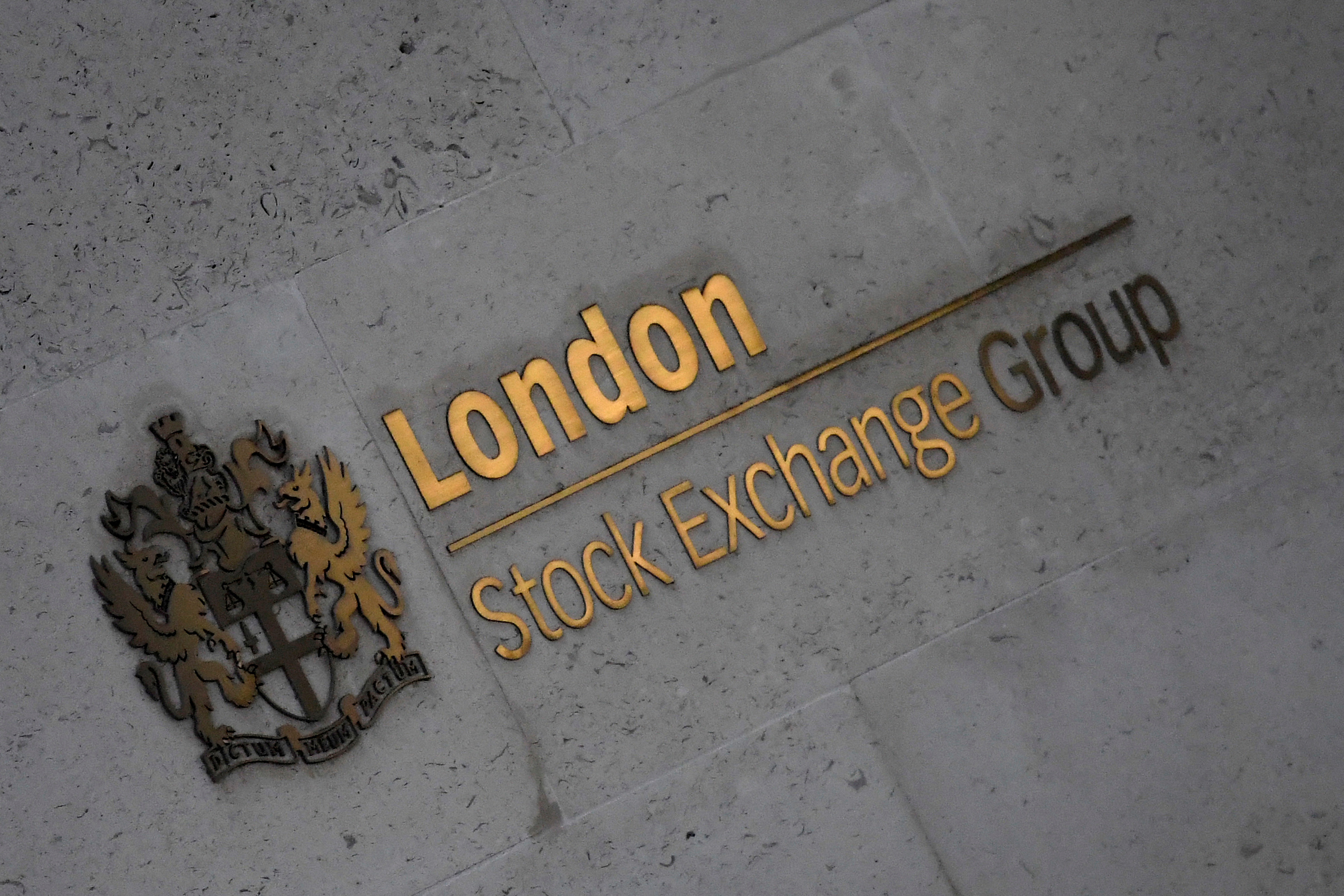/cloudfront-us-east-2.images.arcpublishing.com/reuters/N6Q2C3EVBZLEHE4TAY53OXKEUM.jpg)

[1/2] The offices of the London Stock Exchange Group in London, Britain, December 29, 2017. REUTERS/Toby Melville/File Photo
SYDNEY (Reuters) – European stocks got off to a cautious start on Monday while Wall Street futures struggled, with traders remaining on edge as U.S. debt ceiling negotiations approach crisis time after stalling last week.
US President Joe Biden and Republican House Speaker Kevin McCarthy will meet to discuss the debt ceiling on Monday, less than two weeks before the June 1 deadline, after which the Treasury expects the federal government will struggle to pay its debts.
Failure to raise the debt ceiling will result in a default, and will likely lead to chaos in the financial markets and higher interest rates.
The MSCI All-World Index (.MIWD00000PUS) is up 0.12% on the day, while the European STOXX 600 Index is down 0.03%. The FTSE 100 Index (.FTSE) in London rose 0.19%.
Similarly, US stock index futures painted a mixed picture, with S&P 500 futures down 0.15% while Nasdaq futures up 0.03%.
“We think debt ceiling issues in the US will remain short-lived. Certainly there are risks there of greater financial volatility,” Frederick Neumann, HSBC’s chief Asia economist, said in a webinar on Monday.
“If this is longer than expected, that could potentially lower growth in the US…but that’s not our base case at the moment, because we think we’ll find a solution either before or just after the deadline. The deadline.”
European stocks extended some gains from their counterparts in Asia, which rose with a rally in regional chip stocks after China on Sunday banned US firm Micron from selling memory chips to key domestic industries over security concerns.
The ban helped stocks of Micron’s competitors in China and elsewhere, which are likely to benefit as mainland companies seek memory products from other sources.
However, it was market concerns about the US debt ceiling talks that set the mood.
“In the art of brinkmanship, we feel that to get a deal we have to see bigger market volatility,” said Chris Weston, head of research at Pepperstone.
Jonathan Pingel, chief US economist at UBS, sees the Japanese yen and gold as the best place to take advantage of a US default.
“A deadlock of just one month after date X is likely to cause funding conditions to tighten sharply enough to push the dollar higher,” Pingle said.
On Friday, reports that debt-ceiling negotiations had reached an impasse rattled markets even as Federal Reserve Chairman Jerome Powell said US interest rates may not need to be raised so much given tighter credit conditions from the banking crisis.
Futures are close to a 90% chance that the Fed will keep interest rates unchanged at its next meeting in June, and close to 50 basis points for cuts by the end of the year.
This pulled the dollar off a two-month high against a basket of major peers, although the index found some support from safe haven offers and was last up 0.15% at 103.19.
Meanwhile, regional US bank stocks fell on Friday, as Treasury Secretary Janet Yellen reportedly warned that more mergers may be necessary after a series of bank failures.
In Asia, China kept key lending rates unchanged on Monday even as the economic recovery disappointed. Traders are also grasping the implications of the G7’s “de-risking, not decoupling” approach to China and supply chains outlined at the group’s summit on Sunday.
Beijing summoned the Japanese ambassador to record protests over the “noise over China-related issues” at the summit.
The Fed will release its May meeting minutes on Wednesday, while US PCE inflation data is due on Friday.
In the Treasury market, debt ceiling fears have created large distortions at the short end of the yield curve as investors avoid maturing bonds when the Treasury is at risk of running out of money.
The yield on one-month Treasury bills jumped 15 basis points to 5.6677% on Monday.
The two-year yield was flat at 4.2429%, off a two-month high, while the 10-year yield was also down, to 3.6574%.
Oil prices were affected. US crude futures fell 1.2% to $70.68 a barrel, while Brent crude futures also fell more than 1% to $74.77 a barrel.
Gold prices were largely unchanged at $1,974.60 an ounce.
Prepared by Stella Keough. Editing by Sam Holmes
Our standards: Thomson Reuters Trust Principles.

“Web maven. Infuriatingly humble beer geek. Bacon fanatic. Typical creator. Music expert.”





More Stories
Dow Jones Futures: Microsoft, MetaEngs Outperform; Robinhood Dives, Cryptocurrency Plays Slip
Strategist explains why investors should buy Mag 7 ‘now’
Everyone gave Reddit an upvote